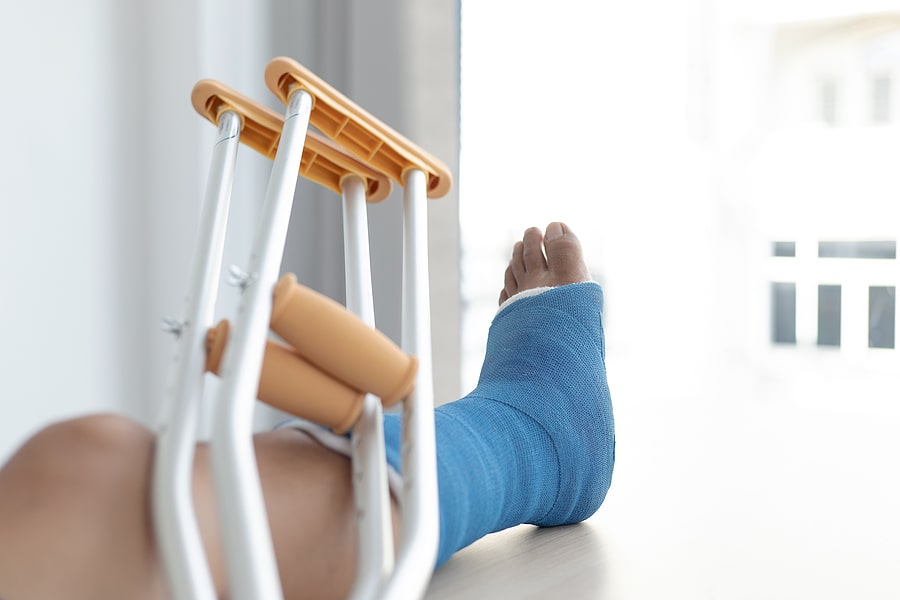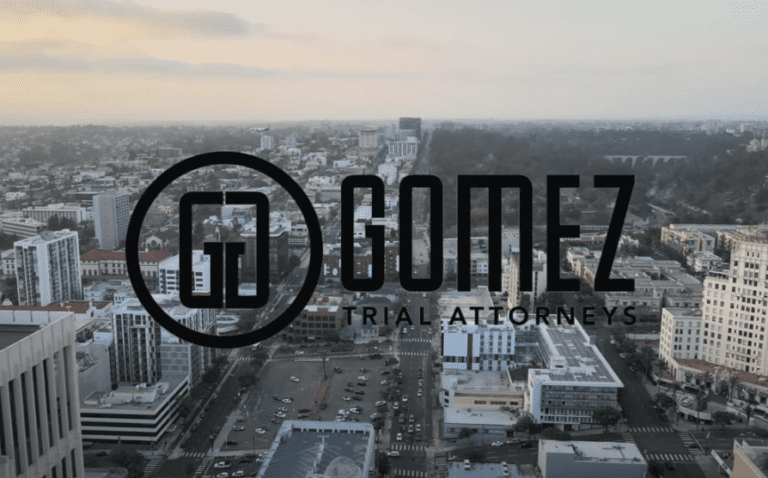Suing for Pain and Suffering
Injuries often prove expensive, at times requiring thousands or even hundreds of thousands of dollars worth of treatment and impacting your ability to work and earn an income. However, the costs of an injury can extend beyond financial costs.
Injuries can place a tremendous emotional toll on injured individuals and their family members. Because the psychological impacts of injuries can prove so severe, state lawmakers allow California personal injury claimants to seek compensation for the quality-of-life impacts of their injuries.
If you sustained injuries in an accident caused by the recklessness or carelessness of another party, you can seek compensation not only for the expenses of your injury but also the real but less tangible impacts. An experienced personal injury lawyer can determine how much compensation you should seek and pursue it on your behalf.
What Constitutes Pain and Suffering?
According to Cornell Law School’s Legal Information Institute, pain and suffering refers to the physical discomfort and emotional distress that individuals often face following an injury.
These psychological impacts may only last briefly—mostly the initial, intense pain of the injury or its treatment. However, certain injuries, such as those involving the brain or the spinal cord, can result in permanent pain and suffering, as injured individuals must adjust to extreme changes in their abilities to earn an income and live independently.
Injured individuals can receive compensation for many types of pain and suffering through the personal injury claims process as non-economic damages. These damages don’t constitute out-of-pocket economic expenses and don’t depend entirely on the cost of the services and products used to treat the condition. Instead, you calculate the amount of non-economic damages you can recover for the impacts of your injury through the use of a formula.
Types of Accidents That Result in Pain and Suffering
Nearly any type of accident that results in injury can result in pain and suffering, including:
- Motor vehicle accidents, including those involving cars, commercial trucks, buses, taxis, rideshares, trains, bicycles, scooters, pedestrians, aircraft, or watercraft.
- Medical malpractice, which involves negligence that takes place in the medical setting, perpetrated by a health care provider, such as a doctor, nurse, dentist, pharmacist, or chiropractor.
- Premises liability accidents, which involve injuries incurred as a result of a hazardous property feature on a residential, commercial, or public property that the property owner knew or had reason to know about and neither took steps to mitigate the hazard or warn others of the hazard through a prominently placed warning sign. The most common type of premises liability claim involves a slip and fall accident, though other types of accidents also fit under the umbrella of premises liability, including dog bites, elevator or escalator accidents, swimming pool accidents, and negligent security.
- Product liability accidents, which involve injuries incurred as a result of a defective product. Foods and medications rank among the most common products to give rise to a product liability claim. Other common product defects that result in injury to a consumer include the parts of automobiles, lawnmowers, and other machinery; appliances; and children’s toys or apparel.
- Nursing home abuse or neglect. Hundreds of thousands of residents live in licensed and unlicensed nursing facilities in the state. Many of these residents are elderly and have dementia or other cognitive or physical health conditions that make them vulnerable to abuse. Neglect—which is the failure to meet the nursing home resident’s basic needs—often results from staffing shortages at these facilities that can lead to insufficient staff members to provide adequate supervision and meet the needs of all residents.
- Wrongful death. California defines wrongful death as a death caused by a wrongful act or neglect of another. When a person dies in an accident in California caused by someone else’s careless or reckless actions, the family members of the deceased can seek compensation for non-economic damages, such as loss of the decedent’s love, companionship, care, protection, and support.
Unfortunately, not all injuries resulting from someone else’s actions stem from an accident. Individuals who have sustained injuries due to intentional acts, such as sexual abuse or assault, can also use California’s personal injury claims process to pursue justice and compensation. These individuals can also pursue compensation for pain and suffering.
The Types of Pain and Suffering Damages You Can Claim
Pain and suffering damages encompass a lot of negative impacts from injuries, including the following:
Pain and Suffering
The obvious impacts, as suggested by the common nickname for non-economic damages, include physical pain and suffering. This can include not only the pain and suffering associated with the injury itself but also particularly painful medical treatments required to assist in your recovery and the impacts resulting from complications of the injury.
Some injuries, such as spinal cord and traumatic brain injuries, produce a high likelihood of complications, and these complications can sometimes prove even more painful and life-threatening than the initial injury.
Emotional Distress
Emotional distress constitutes a common type of non-economic expense and refers to the psychological trauma that the individual incurs due to the injury that results in feelings of fear, anxiety, lack of sleep, depression, and humiliation.
Loss of Consortium
Loss of consortium constitutes a type of damage claimed on behalf of the injured person’s spouse or domestic partner for the loss of physical intimacy and companionship commonly experienced after a serious injury.
Loss of the Enjoyment of Life
Injured individuals commonly seek this type of damage if their injuries prevent them from engaging in hobbies and activities that they enjoyed before the accident. For example, if you loved to hike before the accident and can no longer do so as a result of your injuries, you can seek compensation for your inability to continue a hobby that brings enjoyment and quality to your life.
Wrongful Death Pain and Suffering Damages
Family members of individuals who have died as a result of injuries incurred by someone else’s recklessness, carelessness, or even an intentional act can seek to recover pain and suffering damages, such as loss of love, care, protection, guidance, nurturing, and support.
How Do You Calculate Pain and Suffering Damages?
California law does not lay out a standard way of determining pain and suffering damages.
However, attorneys commonly choose to use the multiplier method, which works as follows:
- First, you calculate all the economic damages associated with the injury. These involve out-of-pocket expenses, including medical expenses, lost wages, loss of earning capacity, and any property damage you sustained in the accident, such as the cost of repairing or replacing a damaged vehicle after a car accident. The sum of these expenses will equal your total economic damage claim.
- You will likely then multiply your total economic damage claim by a number between 1 and 5. The more severe your injuries, the higher the multiplier you will use. This new total will give you your non-economic damage claim.
Factors That Affect the Amount of Pain and Suffering Damages You Will Receive
As noted above, the severity of your injury constitutes one of the most important factors in determining the amount of pain and suffering damages you qualify to receive. More severe injuries will produce higher amounts of economic costs, such as extended hospitalization, surgical intervention, more time away from work, and a higher likelihood of permanent disabilities arising from the injury that render the person unable to work at all. This results in a higher-valued economic claim, which is one aspect of calculating pain and suffering. More severe injuries generally produce more serious impacts on the sufferer’s quality of life, as well, resulting in a higher multiplier for calculating the damages.
Other factors that impact the amount of pain and suffering damages you are eligible to receive include:
- The type of accident that caused your injury. Medical malpractice claims in California have a $250,000 cap on pain and suffering damages, meaning this is the maximum amount you can recover in pain and suffering after becoming injured as the result of medical negligence.
- If you sustained injuries in a motor vehicle accident caused by someone else, but you were driving drunk or without insurance, you may lose your right to claim non-economic damages in a car accident claim.
- If you sustained injuries while committing a felony or attempting to flee the scene of a committed felony, you also lose your right to seek pain and suffering damages.
Proving Pain and Suffering
The evidence used to prove pain and suffering can include items such as:
- Medical records or bills that show the extent of the medical treatment that you had to undergo to heal your injury.
- Photos of property damage or physical injuries that display the severity of the injury.
- Videos showing your activity level before the accident in contrast to your activity level after the accident.
- Notes from doctors or mental health counselors.
- The testimony of family, friends, and coworkers.
- The testimony of expert witnesses who can speak to the type of impacts commonly experienced by people who have suffered injuries similar to yours.
- Evidence of lost time from work, such as time cards or a doctor’s orders that the sufferer should not work.
Can You Seek Pain and Suffering Damages Without an Injury?
If claimants can prove they suffered emotional distress due to an accident in which they did not suffer serious injury, they can seek non-economic damages.
Generally, these claims rely on the testimony of a mental health counselor who can testify that the claimant suffers symptoms of emotional distress, such as insomnia, anxiety, or post-traumatic stress disorder symptoms, such as:
- Intrusive thoughts, including repeated, involuntary memories of the accident, nightmares, or even flashbacks of the event.
- Avoiding people, places, and things that remind them of the event.
- Ongoing distorted thoughts about the event and the claimant’s role in it.
- Having angry outbursts or behaving in a self-destructive way.
A Lawyer Can Help You Determine the Value of Your Pain and Suffering
Long after an injury has healed, the physical and emotional pain and suffering can remain and can continue to impact the quality of your life. This rings particularly true with catastrophic injuries that result in permanent deficits that impair your ability to earn an income or to accomplish personal daily living tasks independently. However, the need for compensation for these impacts applies to most other types of injuries, as well.
For example, an individual who suffers a ruptured spinal disc in an accident can wind up experiencing a loss of stability in the spine and chronic pain that prevents the individual from enjoying life. An individual who suffers severe burns may incur significant scarring in prominent areas of the body that leads to embarrassment and prevents the individual from continuing a career as a salesperson.
Recovering non-economic damages constitutes a crucial part of your claim, as this compensation can assist you in accessing the services and accommodations you need to make life as least distressing and painful as possible. Nearly every personal injury case involves non-economic damages, and an experienced attorney will understand the methods of proving these damages, as well as the types of pain and suffering damages that each injured individual should claim given his or her specific circumstances.
When considering attorneys, make sure to do adequate research to ascertain the attorney’s level of experience and legal knowledge. You want to retain an attorney with significant experience handling cases similar to yours, including experience negotiating with insurance companies and arguing cases in court. You don’t want your case to be your attorney’s first trial; rather, you want to retain an attorney with a track record of successfully recovering pain and suffering compensation for injured individuals.
Discuss your case with an experienced attorney for free during a case evaluation, where the attorney can answer your legal questions and provide more information about your legal rights and options. For your free case evaluation, contact a lawyer online today.








